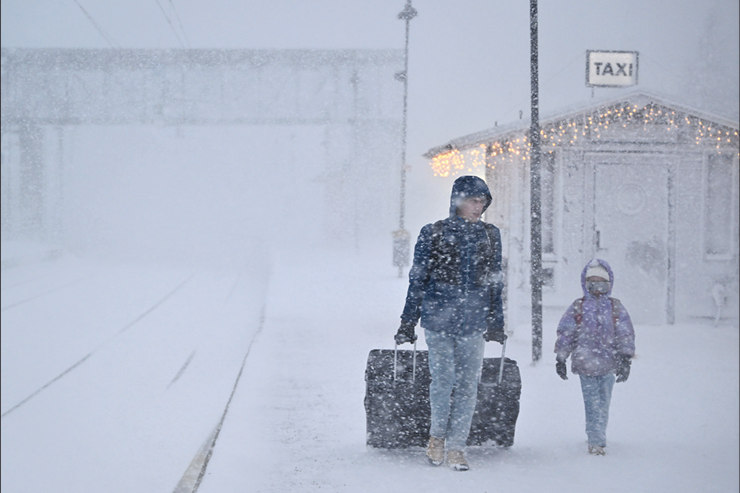Amid pandemic, states act to restrict governors


When the COVID-19 pandemic hit a year ago, many US governors invoked emergency powers to impose restrictions on residents, ranging from temporarily ordering them to remain home to mandatory wearing of masks and the shutting down of restaurant indoor dining, gyms and other businesses.
Lawmakers in 45 states have proposed more than 300 measures this year related to legislative oversight of executive actions during the pandemic or other emergencies, said the National Conference of State Legislatures.
Some of the proposals are going further to fundamentally shift power from governors to lawmakers even if there is another virus outbreak, a terrorist attack or a natural disaster.
"The COVID pandemic has been an impetus for a re-examination of balancing of legislative power with executive powers," Pam Greenberg, a policy researcher at the NCSL, told The Associated Press.
The moves are primarily by Republican lawmakers, but not entirely partisan. Laws limiting a governor's emergency powers have been enacted in five states where one party controls the governorship and both branches of the state legislature: Arkansas (Republican), Colorado (Democratic), New York (Democratic), Ohio (Republican) and Utah (Republican).
On May 18 in Pennsylvania, voters will decide on a pair of constitutional amendments to limit disaster emergency declarations to three weeks, rather than three months, and require legislative approval to extend them.
The Republican-led Legislature placed the measures on the ballot after repeatedly failing to reverse the policies Democratic Governor Tom Wolf implemented to try to contain the pandemic.
Several governors also have vetoed bills limiting their emergency authority or increasing legislative powers.
In Michigan, where new variants are fueling a rise in COVID-19 cases, Democratic Governor Gretchen Whitmer vetoed GOP-backed legislation last month that would have ended state health department orders after 28 days unless lengthened by lawmakers.
Ohio Governor Mike DeWine, a Republican, contended that legislation allowing lawmakers to rescind his public health orders "jeopardizes the safety of every Ohioan". But the Republican-led Legislature overrode his veto the next day.
Kentucky's GOP-led Legislature overrode Democratic Governor Andy Beshear's vetoes of bills limiting his emergency powers, but a judge temporarily blocked the laws from taking effect. The judge said they are "likely to undermine, or even cripple, the effectiveness of public health measures".
In New Hampshire, the state's Republican-led House would prohibit governors from indefinitely renewing emergency declarations, as Republican Governor Chris Sununu has done every 21 days for the past year. It would halt emergency orders after 30 days unless renewed by lawmakers.
In Arkansas, Governor Asa Hutchinson, a Republican, signed a law giving the GOP-led Legislature greater say in determining whether to end his emergency orders. It was quickly put to the test by the Arkansas Legislative Council, which decided to let Hutchinson extend his emergency declaration another two months.
In North Dakota, the House of Representatives pushed forward a bill that sought to ban mask mandates issued by state-elected officials or the state's top health officer.
Republican Governor Doug Burgum vetoed the bill, saying that it removes "a tool from the emergency tool kit that may be needed to help our state save lives and nimbly navigate future pandemics and their unknowable challenges".
A day later, North Dakota House lawmakers overrode the governor's veto, sending the bill to the state Senate, where it has been introduced.
Agencies contributed to this story.

































